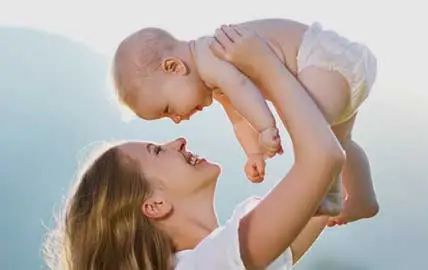Search
en
Jul 08 , 2022
Newborns start wearing baby diapers from birth, and the newborn diapers they first come into contact with are disposable diapers. When the baby can express the need for bowel and bladder, parents can start toilet training the baby and gradually get rid of baby diapers.
"Pissing and peeing" seems to be a must in raising children. Parents seem to discuss as soon as the baby can sit and stand, and then start to try to urinate the baby, and even exchange experiences with each other.
But in fact, "urinating and defecation" itself violates and deprives infants of their ability to control themselves, and it is not good for children to urinate and defecate prematurely. "Training" the child to urinate and defecate on his own is worse than waiting for the child to feel uncomfortable after urinating and defecation. Parents who want their children to learn to urinate and defecate on their own as soon as possible often work hard and fail to achieve the expected results.
Children generally feel uncomfortable urinating in unisex baby pants and urinating in dry diaper overnight at the age of 2 to 2.5 years old, and they will give parents an accurate signal before defecation. At this time, parents only need to take advantage of the situation to guide the child to sit on the toilet, so that the child will form a bowel movement. The relationship with the toilet will quickly establish normal bowel habits.
Emphasizing prematurely can easily lead to inner resistance in children, and the result is often counterproductive.
As a sanitary disposables wholesaler, we are glad to share professional information with you. Generally, when the baby is 1 and a half to 2 years old, the consciousness of voluntary defecation will appear.
At this time, the baby's digestive system and bladder are basically mature enough to control defecation, so parents should pay attention to the baby's state and seize the opportunity to let the baby out of baby diapers. You can start trying not wearing diapers during the day, training to pee in the potty or toilet, and still need to use diapers at night.
As your baby's ability to control urine increases, consider removing dry diapers overnight if they can keep them dry throughout the night.
If the child grows up and still wears diapers to kindergarten, it may bring many problems, including children's teasing and health problems caused by dirty diapers, such as covering the lower body for a long time and airtight, prone to skin symptoms such as diaper rash, or Infection caused by the baby's private parts not being cleaned in time.
Moreover, children who wear diapers all day long for a long time may learn to hold back urine later than babies who do not wear diapers, and such babies are more likely to wet the bed.
However, the timing of "quitting" baby diapers is different for each baby, which is related to the baby's physiological development, whether parents have advanced education, and whether there are good role models in life.
In general, when the child is physiologically mature enough, it is a good time to "quit" diapers. For example, you can sit firmly on the toilet, express your physiological needs, and know to take off your pants to defecate.
When the baby is still unable to urinate on his own, it is best to wear diapers, which is not only convenient but also relatively clean. If you are worried that the diaper will cover the child, you can change it in time after urinating and defecation.


